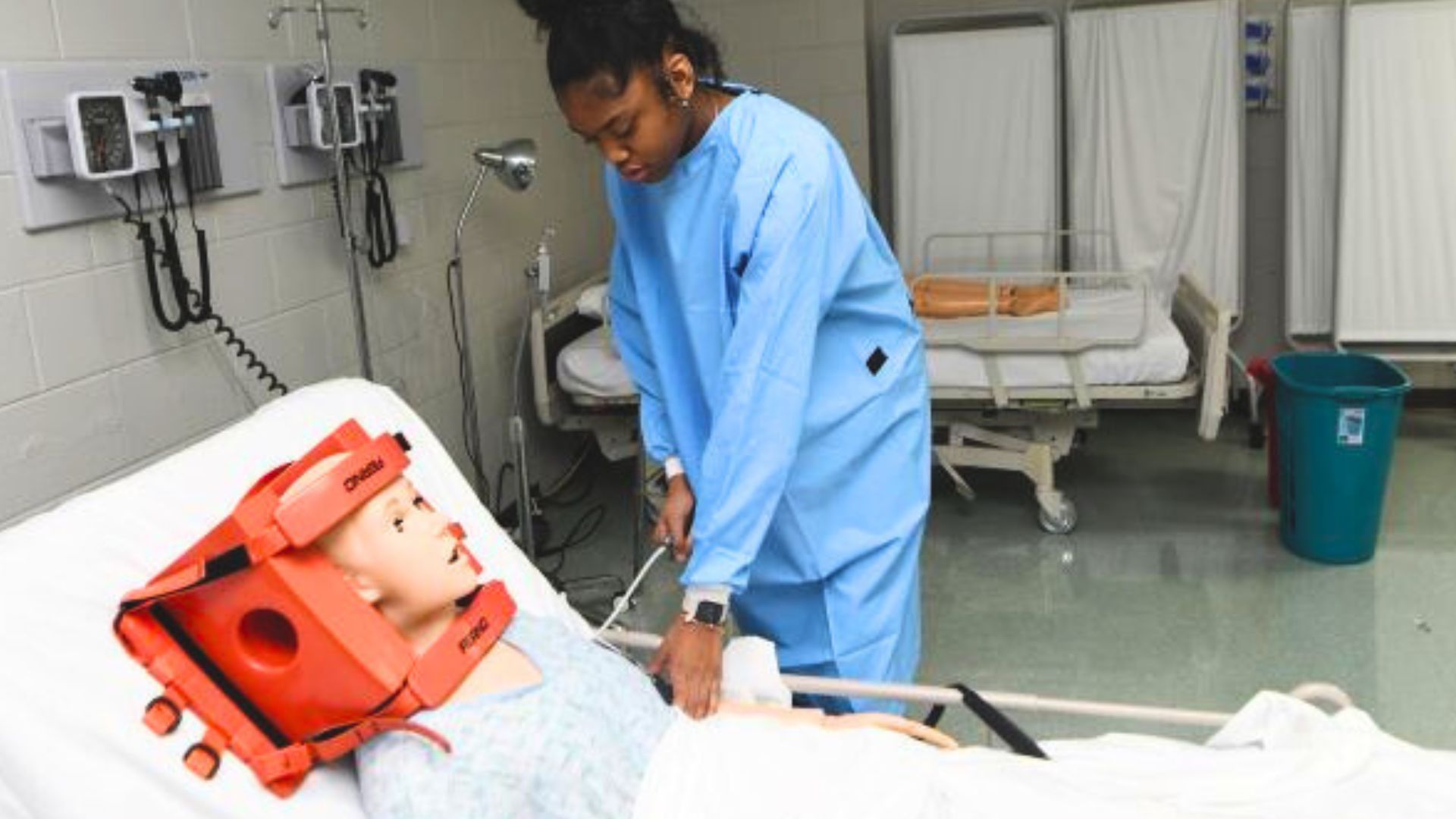From X-ray technician to pharmacy technician to medical biller, the demand for allied health care professionals like these is growing and having a certification is necessary in these specialized fields in order to get hired.
For example, job openings for X-ray and MRI techs—also known as radiologic technologists—are expected to grow by nine percent by 2028, according to the Bureau of Labor Statistics. They work closely with patients, positioning them for X-rays, determining the placements of the equipment, and calculate the dosage of radiation need to create an accurate image.
The job pays $60,510 a year, which is above the country’s annual average income of $48,672.
How Do You Get a Certification?
You generally need to pass a test to earn a certification. They are awarded by industry organizations, private companies, and government agencies to show that you have acquired “specific skills or knowledge in an occupation, industry, or technology,” according to the U.S. Department of Labor. And there are more than 5,000 in-person and online schools and courses offering training to prepare for the exams.
For the past 32 years, the Texas-based College of Health Care Professions (CHCP) has been among them. The school’s sole focus is health care-related programs leading to careers as pharmacy technicians, medical radiology technologists, cardiovascular and diagnostic medical sonographers, medical assistants, and surgical technologists.
Nationwide, jobs openings in all these fields are expected to experience double digit growth by 2026. Tuition for CHCP programs ranges from around $12,000 to $25,000, depending on the program.
 A Program Designed to Address the Needs of Employers and Students
A Program Designed to Address the Needs of Employers and Students
Physicians at Texas Medical Center founded CHCP 32 years ago as an internal training school, born out of a need for qualified allied health professionals. There are schools in six cities in Texas and Eric Bing, CEO of the College of Health Care Professions says “today, we are the largest provider of allied health graduates in the state.”
The programs are designed to help working adults start new jobs in health care relatively quickly and then build up to a degree over time. Curriculum and clinical experiences are developed in what Bing calls “deep partnership” with 1,500 health care employers across the state, meaning these organizations sit on an advisory committee, develop the curriculum externship and practicum opportunities, and end up hiring graduates on a fairly regular basis.
Right now, COVID-19 has forced CHCP to offer all its classes online. But even before the pandemic took hold, a quarter of the school’s 4,500 students were learning online exclusively. Online programs are not just restricted to Texas. They are available to students in 46 other states.
“What we did is step back about five years ago and said let’s totally look at what do our students need in order to be successful? We knew our employers and partners need quality folks,” he says. “They were looking for a lot of diversity. We have bilingual people coming out of these communities who go back and serve as health care professionals because all studies show your quality of care will be better if you have people who understand the people they’re serving.”
Diversity is a cornerstone of CHCP. Bing says the majority of their students and graduates work with people from disadvantaged communities. Almost 60 percent of the students are Hispanic, almost a 25 percent are African American, 90 percent are women, with an equal split older and younger than 25-years-old. In terms of higher education experience, more than a third dropped out of college before and are first-generation college educated.
Working Around a Family’s Schedule

When Jordesha Turner enrolled in CHCP, she had already tried the traditional college route, but was forced to drop out after life circumstances that included homelessness. After the birth of her second child, she and her cousin both enrolled in CHCP to pursue a medical assistant certificate.
“I didn’t know what I was going to do as far as a career or anything, so I went for it,” Turner says.
Bing says the programs are created to be adaptable—to give students time to complete what they need to as quickly as possible while working, parenting, and tending to life responsibilities—with on-campus and online modalities.
Before the COVID-19 outbreak forced shelter-in-place orders, Bing says instructors were able to transition their curriculum to be a majority of online instruction within a few days, without interruption to student studies and progress.
Some portions of the class can still be done in person; as an example, one teacher was able to preserve the integrity of an exam by having students take their tests in their cars in a parking lot so they could supervise.
Job-Ready with Stackable Credentials
CHCP programs are also job-oriented, so graduates are ready to jump into roles, and “stackable”, meaning credentials are building blocks towards a degree.
“Stackable credentials allow students to take shorter time away from working while continuing to progress to a degree. It’s important these credentials have real labor market value, allowing learners to not just earn a degree, but advance their career. They often work best for professional training programs where credentials are endorsed by employers,” says Nate Anderson, senior director of Jobs for the Future.
With this model, CHCP’s online retention rate is 78 percent, 70 percent of students graduate, and 82 percent of them obtain jobs.
Turner achieved her certificate in six months and turned down a job to stay at CHCP to earn her associate degree in health and medical administrative services.
“I felt like the certification wasn’t enough for me, I felt like I could go further,” she says. She earned her She works full time as an EKG technician and expresses pride in being able to work in the medical field during this health crisis.
“It’s a wonderful feeling because in my job, I save lives too,” she says. “Even though it’s not as personal, like physically being with them, it’s just as important. In my position, we have to report when patients’ hearts are going through something serious. We call the doctors, talk to them, we call them directly.”
A Strong Support System
Another aspect of support CHCP provides that may not be typical of higher education institutions are the extraordinary student services and engagement. Administration, staff and instructors are so involved with their students, they are there to provide counsel when they hit a rough patch. Could be with academics, or simply their own fear of entering into a professional setting – an environment they’ve never worked in before.
“One of the major points where people drop out is right before they go to their internships, and before they go to their externships. They could be a straight A student who never missed a day of class and suddenly, there’s a million excuses,” he says. “It’s just fear going into professional setting. It’s like going to a foreign land. This is why we work in the beginning to get people comfortable.”
For student services, the school partners with community resources to help students facing challenges with food safety, domestic violence, legal issues, money management, and homelessness. As a single parent, Turner leaned on CHCP for support when she and her children were facing homelessness. The school connected her with an organization that was able to pay for a hotel room for a week and her first month’s rent for an apartment.
Now, In addition to working and earning workplace credentials, she has returned to CHCP to pursue her bachelor’s degree in health care management. She says she sees a future at her current employer to eventually move into a managerial role.
Turner will earn her bachelor’s degree in September. “Everyone (at CHCP) has played a role in my success. They not only helped me financially, but they helped me become stable for my family,” Turner says. “That is a huge blessing and it’s very appreciated.”
Related Stories:
The value of certifications in cybersecurity
Community colleges and Amazon team up for cloud computing certification training












